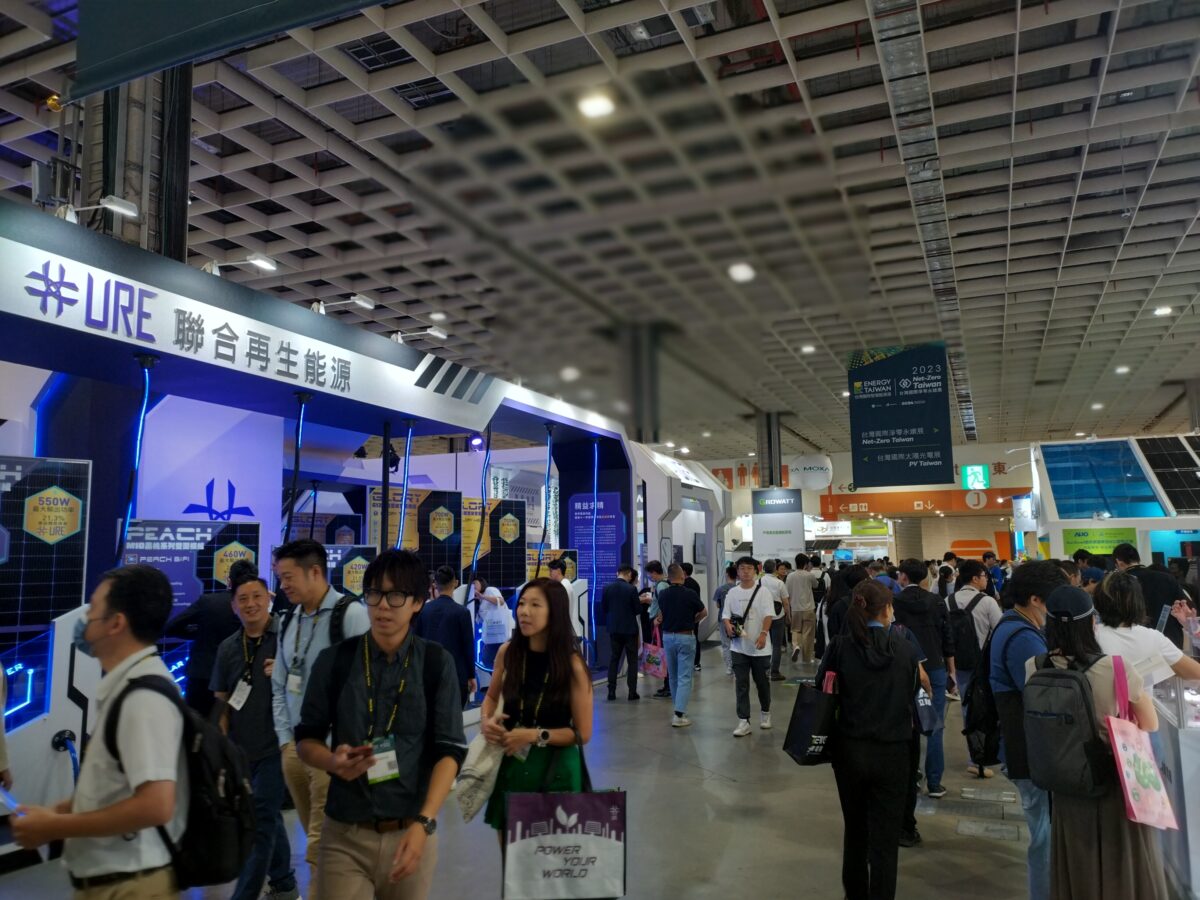Taipei’s Nangang Exhibition Center hosted another Energy Taiwan event this week, combined with Net-Zero Taiwan, focusing on reducing the emissions of the island’s many industries. The show comprised 350 exhibitors and more than 24,000 attendees over three days, which the organizers say amounts to 28% growth over last year. Simon Wang, President of the Taiwan External Trade Development Council, also noted that around 20% of attendees were at the event for the first time, denoting a growing importance for companies looking at net-zero strategies and ways to implement renewable energy.
Energy storage
Energy storage was front and center throughout the event, with companies from various background exhibiting batteries. Many of these are focused on commercial solutions for large, energy hungry industries to maximize their renewable energy uptake. And these often came with sophisticated energy management solutions – illustrating Taiwan’s position as a leader in software development.
The show also saw plenty of talk about large-scale storage, and hopes that changes to legislation might soon drive bigger demand for residential energy storage as well. Battery suppliers were also keen to demonstrate their latest fire safety innovations, including cell level monitoring, automated water and chemical fire suppression systems and the somewhat simpler approach of encasing the whole battery system in concrete, which supplier TCC says would be able to contain fire at temperatures above one thousand degrees, and also bring other advantages in system longevity.
Taiwan will still be reliant on imports for its energy storage plans, with many players sourcing fully made batteries from abroad, or only assembling cells into packs locally. One company, Formosa Smart Energy, is looking to bring battery cell manufacturing to Taiwan. President Hui-Chi Liu told pv magazine that the company is working to bring 2.1 GWh of battery cell capacity online by the middle of 2024, with plans to later expand this to 5 GWh. At its booth in the exhibition, the company also had innovative approaches on show to battery recycling and solid-state batteries based on a mixed ceramic/polymer electrolyte.
Solar manufacturing
Taiwan’s solar manufacturing industry has seen little growth lately, faced with heavy competition from producers in mainland China. The cell and module makers at the show, however, shared a positive outlook, with expectation of more orders from domestic projects, as well as strong exports to the United States – where prices have remained high enough for Taiwan’s manufacturers to be competitive.
One manufacturer stated that it is also examining the opportunity of bringing manufacturing capacity online in the US, but sees some signs that the Inflation Reduction Act, which has brought with it a flood of factory announcements across the US, may have passed its peak. Their calculations show that the US could have 60 GW of module manufacturing capacity up and running by 2026, without much more than 40 GW of annual domestic demand to serve.
On the technology side, these manufacturers report that reliability, rather than the latest technology is the name of the game for now. All of the manufacturers pv magazine spoke with at the event are in the process of switching passivated emitter rear contact (PERC) manufacturing to the latest high efficiency tunnel oxide passivated contact (TOPCon) technology, by the middle of next year.
This content is protected by copyright and may not be reused. If you want to cooperate with us and would like to reuse some of our content, please contact: editors@pv-magazine.com.




1 comment
By submitting this form you agree to pv magazine using your data for the purposes of publishing your comment.
Your personal data will only be disclosed or otherwise transmitted to third parties for the purposes of spam filtering or if this is necessary for technical maintenance of the website. Any other transfer to third parties will not take place unless this is justified on the basis of applicable data protection regulations or if pv magazine is legally obliged to do so.
You may revoke this consent at any time with effect for the future, in which case your personal data will be deleted immediately. Otherwise, your data will be deleted if pv magazine has processed your request or the purpose of data storage is fulfilled.
Further information on data privacy can be found in our Data Protection Policy.